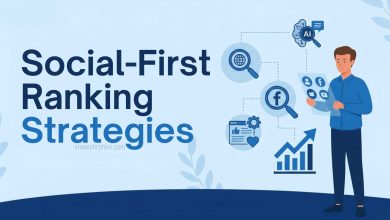Importance of Influencer Marketing in Digital Marketing
Influencer marketing has become an increasingly popular way for businesses to promote their products and services. This marketing strategy involves partnering with influencers, individuals with a large following on social media platforms, to promote a brand or product. In this essay, we will explore the various aspects of influencer marketing, including its benefits, challenges, and future trends.
One of the primary benefits of influencer marketing is its ability to reach a highly targeted audience. Influencers typically have a large following of individuals who share similar interests, making it easier for businesses to promote their products to a specific audience. This targeted approach can lead to higher conversion rates and a more engaged audience.
Another benefit of influencer marketing is its ability to create authentic content. Influencers have built their following by creating content that resonates with their audience, making them a trusted source of information. By partnering with an influencer, businesses can tap into this authenticity and create content that feels genuine and organic.
However, influencer marketing is not without its challenges. One of the primary challenges is finding the right influencer to partner with. Businesses must carefully consider the influencer’s values, audience, and content to ensure that they align with their brand. Additionally, there are concerns surrounding the authenticity of influencer content, with some influencers facing criticism for promoting products that they do not genuinely use or believe in.
Despite these challenges, influencer marketing is a growing industry, and there are several emerging trends that will shape its future. One of the most significant trends is the rise of micro-influencers. Micro-influencers have a smaller following than traditional influencers, but they tend to have a more engaged and loyal audience. This makes them an attractive option for businesses looking to promote their products to a highly engaged audience.
Another trend is the increased focus on diversity and inclusivity in influencer marketing. As consumers become more diverse, businesses are recognizing the importance of working with influencers who represent a range of backgrounds and experiences. This trend is expected to continue, with businesses increasingly seeking out influencers who can help them connect with diverse audiences.
In conclusion, influencer marketing is a powerful tool for businesses looking to promote their products and services. While there are challenges to this marketing strategy, including finding the right influencer and ensuring authenticity, the benefits are significant. As influencer marketing continues to evolve, businesses must adapt to emerging trends and prioritize authenticity and diversity to succeed in this competitive industry.
Get : Premium Digital Marketing E-Books
Influencer Marketing Pros & Cons
Influencer marketing is a marketing strategy that involves partnering with individuals who have a significant following on social media platforms to promote a brand or product. While this marketing strategy can be effective, there are both pros and cons to consider before embarking on an influencer marketing campaign.
Pros of Influencer Marketing:
- Increased Brand Awareness: One of the primary benefits of influencer marketing is its ability to increase brand awareness. By partnering with an influencer, businesses can tap into their existing audience and reach a wider audience.
- Targeted Marketing: Influencers typically have a specific niche or audience, making it easier for businesses to target their marketing efforts to a particular group of people. This targeted approach can lead to higher conversion rates and a more engaged audience.
- Authentic Content: Influencers have built their following by creating content that resonates with their audience, making them a trusted source of information. By partnering with an influencer, businesses can create content that feels genuine and organic.
- Cost-Effective: Compared to traditional advertising methods, influencer marketing can be cost-effective. While some influencers charge significant fees for partnerships, many micro-influencers are willing to partner with businesses for free products or a small fee.
Cons of Influencer Marketing:
- Finding the Right Influencer: One of the primary challenges of influencer marketing is finding the right influencer to partner with. Businesses must carefully consider the influencer’s values, audience, and content to ensure that they align with their brand.
- Authenticity: There are concerns surrounding the authenticity of influencer content, with some influencers facing criticism for promoting products that they do not genuinely use or believe in. This can lead to a loss of trust from the audience and a negative impact on the brand.
- Cost: While influencer marketing can be cost-effective, partnering with popular influencers can be expensive. Businesses must carefully consider their budget and the potential return on investment before embarking on an influencer marketing campaign.
- Difficulty Measuring ROI: Measuring the success of an influencer marketing campaign can be challenging. While metrics such as engagement and reach can be used to evaluate the success of a campaign, it can be challenging to determine the actual return on investment.
Get : Instagram Ads Success Course
Influencer marketing Future Scope
Influencer marketing has been rapidly growing in scope in recent years and has become a popular marketing strategy for businesses of all sizes. The scope of influencer marketing includes a wide range of social media platforms, niches, and industries. Here are some examples of the scope of influencer marketing:
- Social Media Platforms: Influencer marketing is primarily focused on social media platforms such as Instagram, TikTok, YouTube, and Twitter. Each platform has its own unique audience, and businesses can choose to work with influencers who have a significant following on one or more platforms.
- Niches: Influencer marketing is not limited to a specific niche or industry. Businesses can work with influencers who specialize in a variety of niches, such as fashion, beauty, fitness, food, and travel. This allows businesses to target their marketing efforts to a specific audience and create content that resonates with their target customers.
- Brand Awareness: The scope of influencer marketing includes increasing brand awareness through partnerships with influencers. Businesses can leverage the influencer’s existing audience to reach a wider audience and build brand recognition.
- Product Launches: Influencer marketing is often used to promote new product launches. By partnering with influencers, businesses can create buzz around their new product and generate interest among their target audience.
- Sales and Conversions: The scope of influencer marketing also includes increasing sales and conversions. By partnering with influencers, businesses can drive traffic to their website, promote specific products or services, and increase sales.
- Micro-Influencers: Another aspect of influencer marketing is the use of micro-influencers. Micro-influencers are individuals who have a smaller following but are highly engaged with their audience. Working with micro-influencers can be cost-effective and can lead to higher conversion rates.
- User-Generated Content: Influencer marketing can also involve the creation of user-generated content. By encouraging their audience to create and share content related to their brand, businesses can increase engagement and generate authentic content that resonates with their target audience.
In conclusion, the scope of influencer marketing is vast and continues to grow. Businesses of all sizes can leverage this marketing strategy to increase brand awareness, promote product launches, increase sales and conversions, and generate user-generated content. With the rise of social media and the increasing influence of online personalities, influencer marketing is expected to continue to grow in scope and importance in the years to come.
Get : Ready Made Digital Store with 100 Products
How to Create an Influencer Marketing Strategy
Creating an effective influencer marketing strategy requires careful planning and execution. Here are some key steps to follow:
- Define Your Objectives: The first step in creating an influencer marketing strategy is to define your objectives. What do you want to achieve through influencer marketing? Your objectives could be increasing brand awareness, driving traffic to your website, promoting a new product, or increasing sales.
- Identify Your Target Audience: Once you have defined your objectives, it’s important to identify your target audience. Who are the people you want to reach through your influencer marketing campaign? Consider factors such as age, gender, location, interests, and buying behavior.
- Choose the Right Influencers: Choosing the right influencers to work with is critical to the success of your influencer marketing campaign. Look for influencers who have a significant following in your target audience and whose values align with your brand.
- Set a Budget: Before you start working with influencers, it’s important to set a budget for your campaign. This will help you determine the number of influencers you can work with, the type of content you can create, and the platforms you can use.
- Define Your Campaign Strategy: Once you have identified your target audience and chosen your influencers, it’s time to define your campaign strategy. This includes the type of content you want to create, the platforms you want to use, and the timeline for your campaign.
- Track and Measure Your Results: Finally, it’s important to track and measure the results of your influencer marketing campaign. This will help you understand what worked well and what didn’t, and make adjustments for future campaigns.
Some additional tips for creating an effective influencer marketing strategy include:
- Building a strong relationship with your influencers by communicating clearly and offering fair compensation
- Being transparent with your audience about sponsored content
- Creating content that is authentic, engaging, and aligned with your brand values
- Encouraging your influencers to use call-to-action in their content to drive traffic to your website or social media channels
- Keeping track of your competitors and adjusting your strategy accordingly.
In conclusion, influencer marketing can be a powerful tool for businesses looking to reach a wider audience and increase brand awareness. By following these key steps and best practices, you can create an effective influencer marketing strategy that delivers results.
Download Free Instagram Influencer Marketing Guide eBooks






